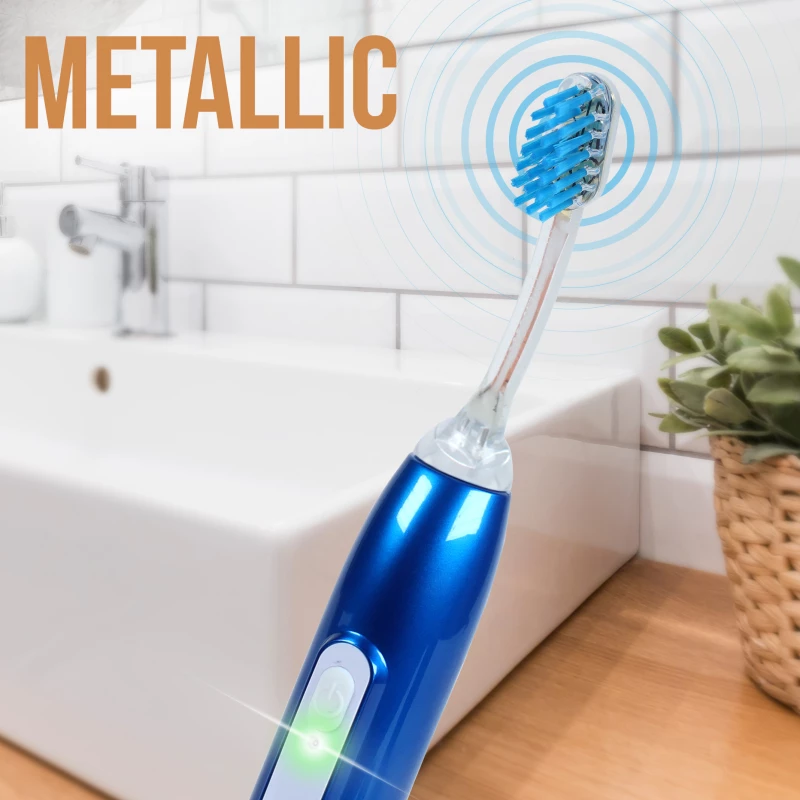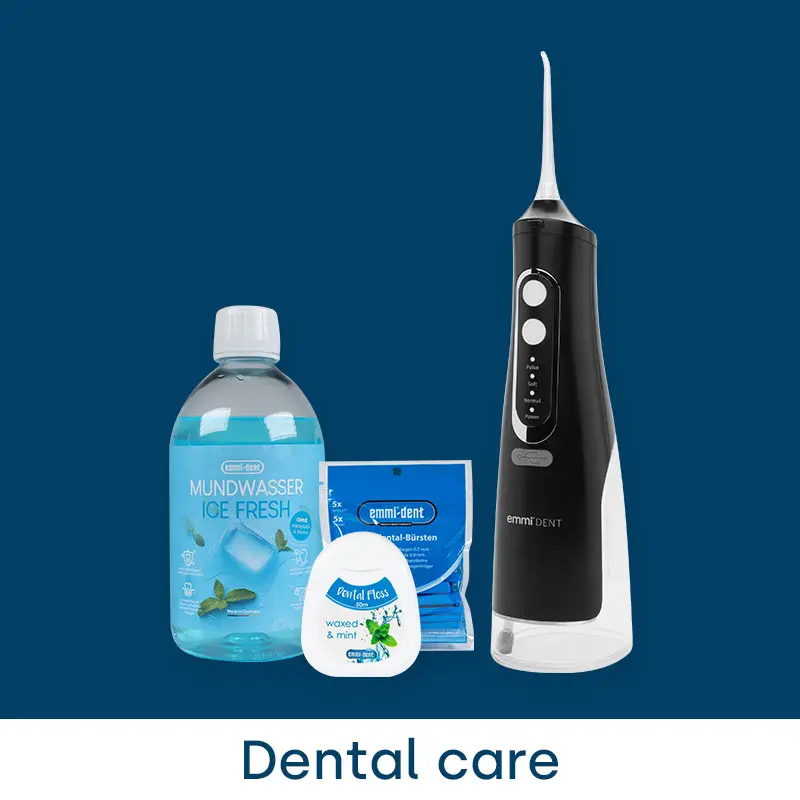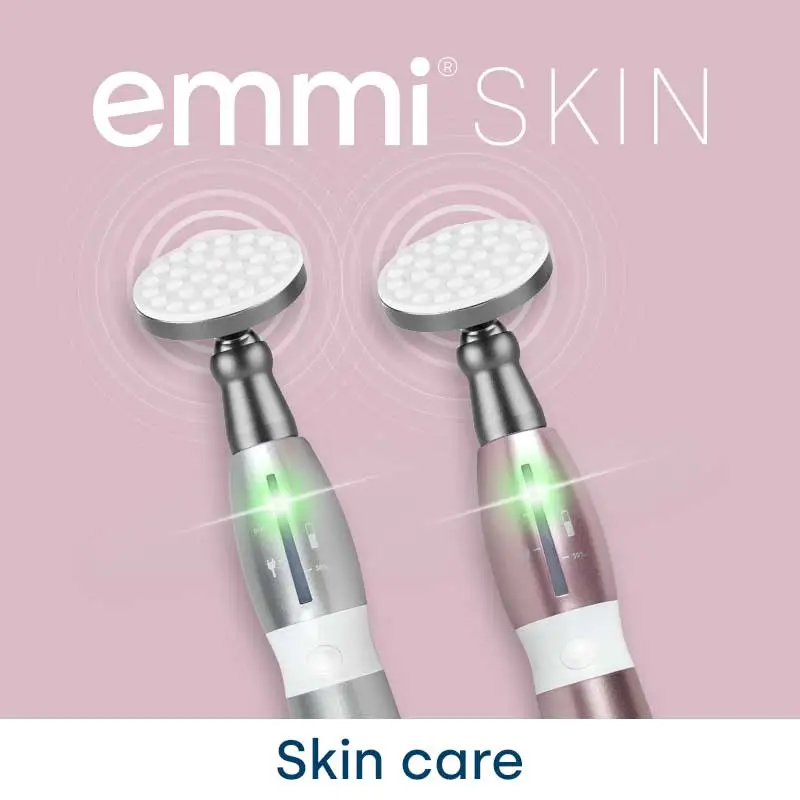
In modern dentistry, there are a variety of solutions for replacing lost or damaged teeth. Tooth replacement plays a crucial role, not only to improve functionality when chewing and speaking, but also to restore the aesthetic appearance of the smile. Whether caused by accident, disease or natural wear and tear, the loss of teeth can have a significant impact on quality of life.
This is where dentures come into play, which are so diverse that there is a suitable option for almost every need and budget. From fixed bridges and crowns to removable dentures and state-of-the-art dental implants, each type has its own specific benefits and applications. In this article, we will introduce the different types of dentures in detail and help you find the best option for your individual needs.
The most important facts summarised in advance:
- Crowns: Ideal for restoring damaged teeth. They protect and strengthen the tooth structure. Disadvantage: It is necessary to grind down the natural tooth, which can lead to tooth loss.
- Bridges: A cost-effective solution for missing teeth, supported by neighbouring teeth. Disadvantage: Preparation of neighbouring teeth can lead to their weakening.
- Implants: Offer a permanent and stable solution that best imitates the natural tooth. They prevent bone loss. Disadvantage: Higher costs and a longer treatment period must be taken into account.
- Veneers: Perfect for aesthetic improvements as they correct the colour and shape of teeth. Disadvantage: The process is irreversible and can weaken the natural teeth.
- Dentures: Flexibly available as partial or full dentures to replace multiple teeth. Advantageous because of their cost-effectiveness. Disadvantage: They can affect comfort and chewing ability and require adjustments.
Each of these options has specific advantages that make them suitable for different dental needs. Choosing the right dentures should always be done in consultation with a qualified dentist to ensure the best fit and functionality.
Types of dentures
When it comes to replacing lost or damaged teeth, there are many different types of dentures available to you. Each option has specific characteristics that make them suitable for different needs and situations. In this first section, we'll give you an overview of the most common forms of dentures, from fixed solutions such as crowns and bridges to removable dentures. Whether you're looking for a permanent solution or a flexible option that you can manage yourself, there are options to suit everyone.
Crowns: Protection for damaged teeth
Dental restorations in the form of crowns play a crucial role in dentistry, especially when it comes to effectively restoring damaged or decayed teeth. A crown is basically a cap that is custom-made to completely cover a tooth. It not only restores the shape, size and strength of the original tooth, but also protects the underlying tooth from further damage.
Crowns can be made from different materials, depending on the patient's needs and preferences:
- Porcelain: Aesthetically pleasing and can be colour matched to natural teeth, ideal for visible areas.
- Metal: Extremely durable and resistant, often used for molars.
- Ceramic-metal combinations: Offer both aesthetics and stability.
Advantages
- Durability: Crowns offer a permanent solution and often last for many years, even under the stresses of daily chewing.
- Aesthetics and function: They not only improve the appearance of a damaged tooth, but also its functionality, especially when chewing and speaking.
Disadvantages
- Tooth preparation: To fit a crown, the natural tooth often has to be ground down considerably, which is irreversible.
- Cost: High quality materials and the complexity of fitting can increase the cost.
Crowns are an excellent choice for the long-term maintenance of your dental health and aesthetics. They provide robust protection and help to preserve the structure of the rest of your dentition by preventing further damage from spreading. Whether for purely functional reasons or to improve your smile, crowns are an investment in your health and confidence.
Bridges: The solution for gaps
When it comes to closing gaps caused by missing teeth, bridges offer a proven and effective solution. These dental devices consist of one or more artificial teeth supported by crowns that are attached to the neighbouring natural teeth.
Bridges can be made from a variety of materials, including porcelain, ceramic and metals, which are often used to achieve optimal aesthetics and functionality. The artificial teeth, also known as pontics, are firmly attached to the supporting crowns, which are placed over the neighbouring teeth.
Advantages
- Cost-effectiveness: Compared to implants, bridges are often less expensive and require less time for treatment.
- Less invasive: The procedure is less invasive than the placement of implants as no bone surgery is required.
- Aesthetic and functional improvements: Bridges not only restore full functionality when chewing and speaking, but also improve the appearance of your smile.
Disadvantages
- Adaptation of neighbouring teeth: To install a bridge, the neighbouring teeth must be ground down to make room for the crowns. This process can lead to permanent loss of tooth structure.
- Care requirements: Bridges require careful hygiene practices to prevent the build-up of plaque under the bridge and on the anchor teeth, which can otherwise lead to tooth decay and gum disease.
Bridges are a proven method of restoring the aesthetics and function of your dentition after tooth loss. They offer a quick and cost-effective way to complete your smile and improve your quality of life. However, it is important that you practice regular dental check-ups and good oral hygiene, for example with our emmi-dent ultrasonic toothbrush, to maximise the life of your bridge and maintain the health of your entire mouth.
Implants: The sound choice for a long-term tooth replacement solution
Dental implants set a standard for permanent tooth replacement and represent one of the most advanced solutions in modern dentistry. In this procedure, a titanium post is surgically inserted into your jawbone to act as a new tooth root. Crowns, bridges or even full dentures can then be attached to this post to replace one or more missing teeth.
The implant itself is made of titanium, a material valued for its biocompatibility and ability to fuse with the bone (osseointegration). This integration forms a strong and stable base for the dental prosthesis.
Advantages
- Stability and comfort: Implants offer almost natural stability and comfort as they are firmly anchored in the jaw.
- Bone preservation: Unlike other tooth replacement options, implants stimulate the jawbone and help prevent the bone loss that can occur after tooth loss.
- Longevity: With proper care, implants can last a lifetime.
- Aesthetics: They offer a natural look and can be customised to blend seamlessly with your smile.
Disadvantages
- Surgical procedure: The placement of an implant is a surgical process that is performed under local anaesthetic or sedation.
- Cost: Implants are often more expensive than other types of tooth replacement. The higher cost reflects the complexity of the procedure and the permanent benefits.
- Healing time: Osseointegration can take several months, during which you may need to wear temporary dentures.
Implants are an excellent choice for many people seeking permanent and stable dentures. While they require a larger initial investment both financially and in terms of healing time, they offer long-term benefits that can significantly improve quality of life. If you have the opportunity to choose this option, you can look forward to a solution that is well worth it.
Veneers: a flawless smile in no time at all
Veneers are thin, customised veneers made of porcelain or composite material that are permanently applied to the front of the teeth. They are a popular choice for anyone who wants to quickly and effectively improve the appearance of their teeth.
Veneers are custom-made to perfectly match the shape and colour of your teeth. Porcelain is particularly popular as it has translucent properties that are similar to those of natural teeth and ensure a particularly natural appearance. Composite materials offer a more cost-effective alternative and can often be customised in just one session.
Advantages
- Aesthetic improvement: Veneers are ideal for correcting a variety of cosmetic issues, including discolouration, small gaps, slight misalignments or chipped corners.
- Fast results: Veneers can often be completed in just a few appointments, making them a quick solution for immediately visible results.
- Gentle on the tooth structure: Compared to crowns, which require significant grinding of the natural tooth, veneers usually require minimal intervention.
Disadvantages
- Irreversibility: Once applied, veneers cannot be easily removed as the process involves grinding down the natural teeth.
- Durability: Although durable, veneers may need to be replaced after a few years, especially if they are made of composite materials.
- Cost: Porcelain veneers can be costly, especially when treating multiple teeth.
Veneers offer a fantastic way to transform the appearance of your smile quickly and effectively. They require careful care, similar to your natural teeth, to maintain their beauty in the long term. If you are considering getting veneers, discuss the options and expected outcome thoroughly with your dentist to ensure they are the best solution for your specific needs.
Dentures: Flexible solutions for tooth replacement
Dentures, commonly known as dentures, offer a versatile and accessible method of replacing lost teeth. They are available in a variety of designs, including partial dentures that replace some teeth and full dentures that are used in cases of complete loss of natural teeth.
Dentures are made from a combination of acrylic (for the base) and special dental resins or porcelain (for the teeth). The base of the denture is designed to match the colour of the gums and provide a natural look.
Advantages
- Cost-effectiveness: Dentures are more financially accessible compared to other tooth replacement options such as implants or bridges.
- Non-surgical: Fitting dentures does not require surgical procedures, making them a good option for patients who want to avoid surgery or who have medical concerns about invasive procedures.
- Quick fabrication and fitting: In many cases, dentures can be fabricated and fitted relatively quickly, allowing for quick solutions to tooth loss.
Disadvantages
- Regular adjustments required: As the jawbone can change over time, regular adjustments are required to ensure that the dentures fit correctly and remain comfortable.
- Impairment of chewing and speech function: New denture wearers in particular may initially experience difficulties with speech and chewing. These problems often improve with time and familiarisation.
- Care and hygiene: Dentures require careful cleaning and care to prevent a build-up of bacteria and other problems such as bad breath and gingivitis.
Dentures offer a practical and cost-effective solution to tooth replacement and can significantly improve quality of life. Although they require regular care and potentially more frequent adjustments, they are a valuable option for many people looking for an affordable way to restore their dental function and smile.
The optimal choice of dentures
Deciding on the right dentures is a personal choice that is heavily influenced by your individual needs, your habits and, of course, your budget. Advanced solutions such as implants offer long-term benefits and support the preservation of bone structure, while more traditional options such as bridges and dentures remain widely used due to their cost-effectiveness and ease of use.
Working closely with your dentist is crucial to finding the best solution for you. It's not just about closing a gap - choosing the right dentures can significantly improve your quality of life and help maintain or restore your natural function and aesthetics.
Don't forget that caring for your dentures and having regular dental check-ups is essential to prolonging their life and benefiting from good oral health in the long term. By investing in your dentures and looking after them carefully, you can be sure of a radiant smile and functional chewing ability for many years to come.











